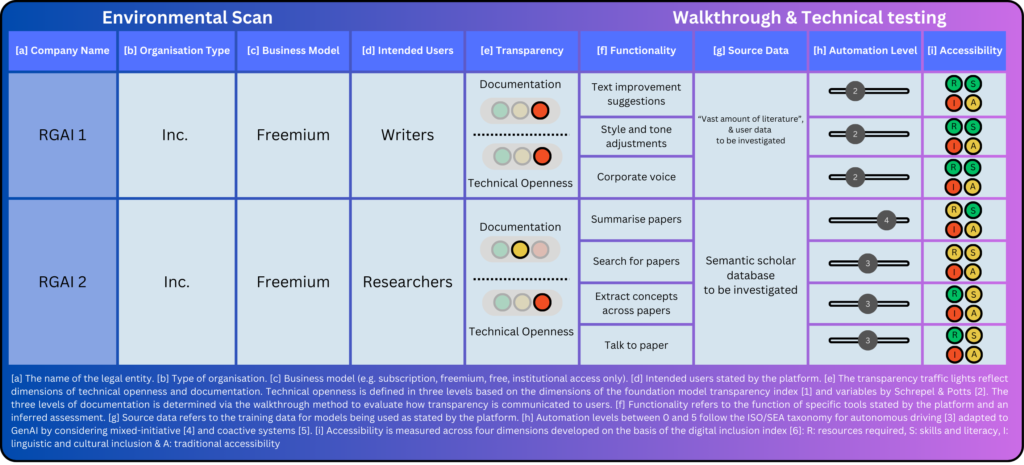In this workstream, we identify, critically analyse and describe RGAI tools, their evolving and contested cultures of use within academic research and publishing, and their relationship to the broader AI economy.
We use a range of sociotechnical methods, including surveys, desk research, technical app walkthroughs, and scrollback interviews to:
- Identify and categorise the range of RGAI tools and their uses by academics and researchers, and how these change over time as the GenAI platform economy evolves.
- Map the range of shared and contested views on RGAI technologies and practices among stakeholders, including journal editors, librarians and others, who have intervened in the debate and have shaped discussion about the use of GenAI for research.
- Critically analyse RGAI tools and platforms in terms of their affordances, design, and relationship to the political economy of GenAI and academic publishing, especially commercial publishing. Here we attend to key dimensions such as data and model openness, copyright, ownership structure, and monetisation strategies.
- Produce in-depth comparative analyses of commonly used RGAI tools platforms in the form of an RGAI Index, alongside short, public-facing reports and explainers on the affordances, challenges and ethical questions associated with RGAI.
RGAI Index Prototype

This Workstream is led by:
